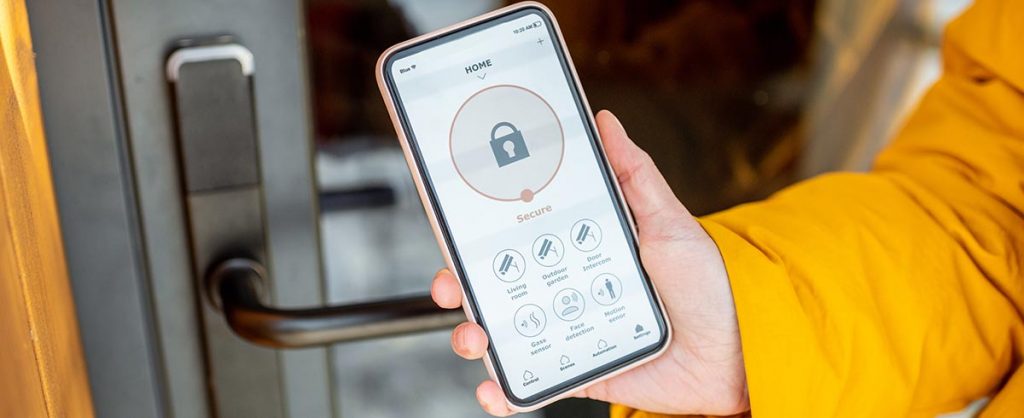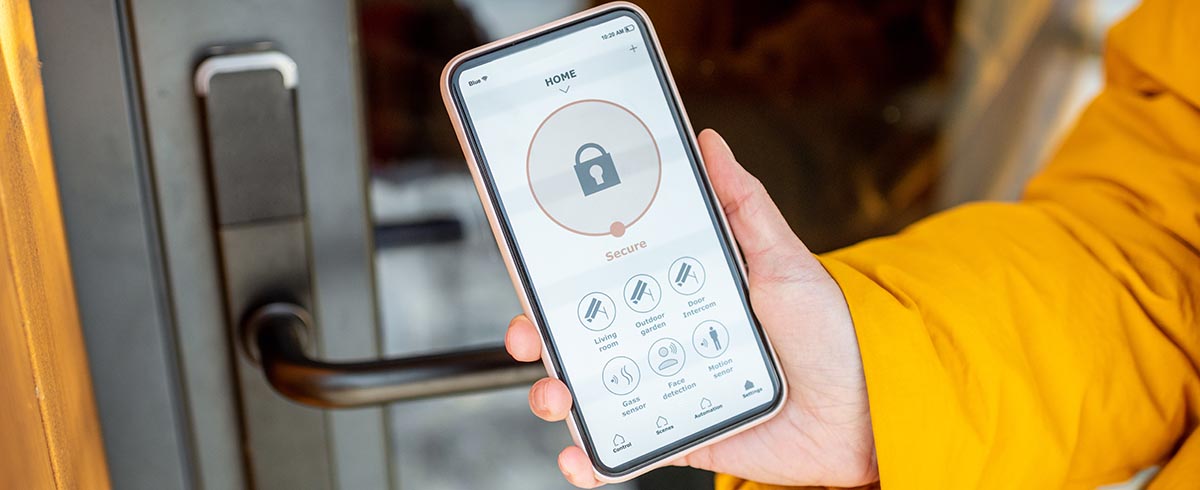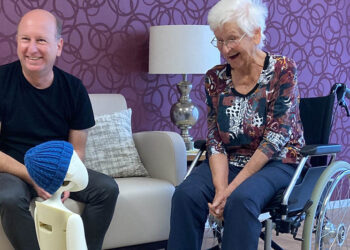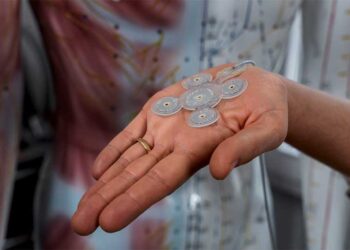Dieser Beitrag ist auch verfügbar auf:
Deutsch
Smart locks can solve many challenges: An app turns the smartphone into a key. And regardless of my location, other people can be guaranteed access to premises. In addition to smart parcel delivery, older people and people with disabilities have new opportunities to control access for doctors and care staff themselves, for example.
We spoke to Eric Clausing, Head of IoT at the German IT security company AV-TEST: What security measures should be considered for a smart lock? And what is the best way to find out about the devices?

Eric Clausing heads the IoT division at the independent IT security institute AV-TEST in Magdeburg/Germany. Started as a test company for the evaluation of antivirus and security solutions, the company has also been active in the IoT and smart home sector since 2015. The company tests according to its own standard and also certifies solutions for companies.
SBC: Mr. Clausing, the delivery of parcels to front rooms is currently a much-publicized topic. Smart door locks mean new delivery options in many countries. What do consumers need to pay particular attention to with this form of delivery?
Clausing: The topic of smart locks is no longer a new one. There has been a market for this for several years and there are good devices that also offer a high level of security.
There are two target groups in this field: On the one hand, those who already have a Smart Lock. So already have confidence in the devices and now additionally use this option. And secondly, those who are now thinking about purchasing a Smart Lock for this anteroom delivery, for example. Then, of course, this is a question of trust that arises all over again. Of course, you have to decide that for yourself.
The biggest advantages are obvious: you can open your door key-free with the smartphone in your pocket. This makes it easier to get home with lots of bags, for example. You can also open doors remotely and control access.
But you also have to be aware of the possible consequences of the technologies you bring into your household. When it comes to home delivery, you don’t just have to trust a device, you also have to let a stranger into your home. For many people, I think this is the even bigger factor to consider.

What are smart locks?
Smart locks allow residents to monitor and control access to doors remotely via a smartphone or tablet, for example. The smartphone or even voice assistants can thus also become an intelligent key.
They are more than just a technical “gimmick”: these products can also help older people and people with disabilities to live independently and look after their safety. Example: Doors can be opened from the patient’s bed with Smart Locks – for example, if doctors or nursing staff need to be let in.
These solutions should be carefully considered – also from a safety perspective. You can find the latest test results for Smart Locks from AV-TEST here
SBC: What security measures do you recommend when opting for this new delivery option to the anteroom? Security measures are usually taken at the outer boundaries of our apartments and houses.
Clausing: In Austria, the new delivery service from Austrian Post only works with selected devices from the manufacturer Nuki. We have not yet been able to identify any weaknesses in these products in recent years. These guarantee a high level of residential security.
However, there is never one hundred percent certainty. So you can’t rule out the possibility of there being a weak point here anyway. You must always be aware of this when deciding on a smart solution.
In any case, it makes sense to combine this delivery variant with a camera solution in the entrance area from the rear. There are already small, low-power camera solutions that also work with motion detectors and human detection.
You will receive a message upon delivery when the parcel has now been delivered. At the same time, the camera would still trigger and provide a direct view of the relevant area.
SBC: What measures do you recommend when selecting smart locks – regardless of delivery services? These can also help people with disabilities, for example, to independently control access to their living area.
Clausing: I recommend choosing a good and tested device. For less tech-savvy users, test blogs or quality seals are a good way to find your way around. Our product overview of smart locks provides a good overview of the products on the market. We not only certify and test for companies, but also take on devices that we find interesting. As an independent testing institute, we document and list products and their weak points.
Iot is short for “Internet of Things” and refers to products and solutions that are networked with each other or via the Internet. These include solutions such as fitness trackers, cameras, vacuum cleaners, smart watches – and smart home solutions.
SBC: Older people and people with disabilities are particularly vulnerable target groups. Are there any criteria that you have to pay attention to in any case? For example, when linking with voice assistants, such as Alexa from Amazon? Example: If the windows are open in summer, I have already heard of burglars who have opened smart locks by calling out to voice assistants.
Clausing: That’s quite conceivable with a voice assistant if no biometric authentication is involved. Unique identification via commands or spoken pin codes makes sense here. There is now a biometric speaker recognition feature for Alexa, the Voice ID. It is designed to prevent unauthorized persons from operating Alexa.
Although operation via apps is very simple, it can be too complicated for older people in particular to operate via a smartphone. Therefore, if you absolutely want to control a smart lock via voice assistant, you should at least set up Voice ID and use it with the smart lock solution.
However, you have to be aware that you are giving out a valuable biometric feature that makes you clearly identifiable. That would be like providing Amazon with your fingerprint. And an outright secret is of course always one of those things: it is then no longer a secret. For these reasons, I would not operate a smart lock via voice assistants, as they offer a new target.
Voice assistants should always be carefully considered. There are many stories about children who have ordered the same products 50 times via Amazon.
SBC: So child safety is always an aspect that has to be considered. Another question: What legal regulations in Europe should be taken into account when purchasing smart locks?
Clausing: The Cyber Resilience Act is part of the EU’s cyber security strategy. This heavily regulates the IoT sector as a whole and takes the level of security to a whole new level.
Precisely because we have seen in the past that products from other EU countries in particular often do not meet the requirements that we would like to see. The Cyber Resilience Act regulates this. This also includes manufacturers from abroad and sellers who purchase IoT devices from other EU countries. They can be held liable for security vulnerabilities.
We hope that this will have a further positive impact on the level of security for the entire IoT product range. These are not major security requirements, but they should ensure a basic level of security. The Cyber Resiliance Act is an important first step towards ensuring better security for these products.
Thank you for the interview!
Author: Anja Herberth
Chefredakteurin
















